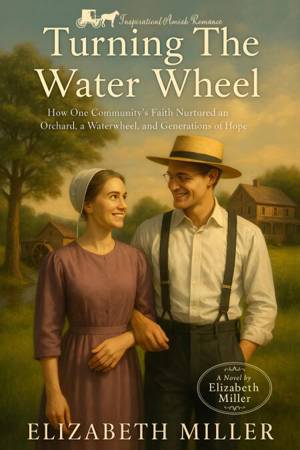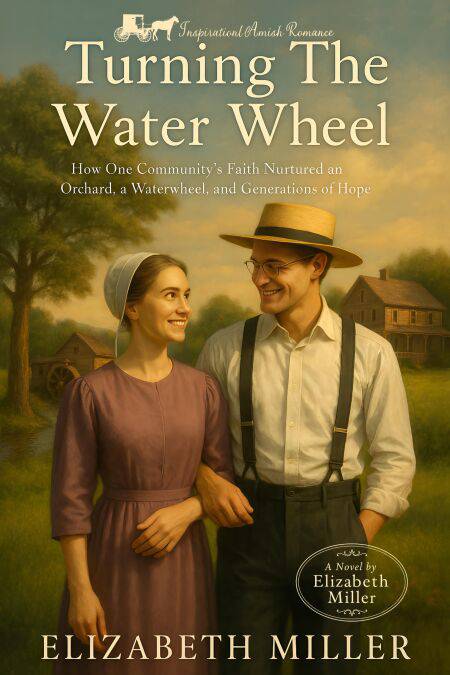
- Afhalen na 1 uur in een winkel met voorraad
- Gratis thuislevering in België vanaf € 30
- Ruim aanbod met 7 miljoen producten
- Afhalen na 1 uur in een winkel met voorraad
- Gratis thuislevering in België vanaf € 30
- Ruim aanbod met 7 miljoen producten
Omschrijving
From the first pages of Turning the Water Wheel, I felt the rare hush that settles over a book when it speaks with both wisdom and welcome. Elizabeth Miller has crafted more than a novel; she has planted an orchard of story whose roots reach deep into faith, family, and the patient rhythms of the land. Set along the rolling acres of Fillermore Creek Orchard, this is a tale that reminds us how ordinary days—harvesting fruit, mending flumes, rocking a baby to sleep—can become extraordinary acts of covenant and grace.
Emma Zimmerman, the quiet heart of this narrative, drew me in at once. Her journey from the gray chambers of London back to the sun-dappled orchard of her childhood is not merely a return to a place but to a calling. Each challenge she faces—drought that cracks the soil, blight that threatens the harvest, even the subtle temptations of convenience and profit—becomes both a test of skill and a test of spirit. Through Emma's steadfastness we glimpse a truth often forgotten in a hurried age: land is more than commodity, and harvest more than fruit.
Miller's prose brims with pastoral splendor and luminous detail. The waterwheels hum beneath ivy-clad beams. Lanterns swing gently during baptisms beneath blossoming apple branches. The first jewel-red grapes of an Ice Wine harvest shine like a promise at twilight. Yet the novel's quietest passages stay with me just as powerfully: Joanna Beiler stirring elderflower tonic, Conrad Yoder laying down his pride to lift up his neighbors, Emma cradling baby Miriam while the wind moves softly through the walnut tree. These moments are written with the sort of reverence that can only come from a heart attuned to creation's slow music.
But it is the chorus of community that lingers longest. No single savior rescues the orchard; rather, a multitude of joined hands—knitting lavender sachets, hauling stones, praying by lantern light—carry the day. In an age that prizes solitary achievement, Turning the Water Wheel sings of a fellowship where each small deed rings eternal. The closing scene, with Emma unfolding her father's last letter beneath the orchard's ancient canopy, offers a benediction of generations united by labor, worship, and song.
Elizabeth Miller's vision places her among the finest storytellers of spiritual fiction. Readers who love Jan Karon's neighborly grace or Elizabeth Goudge's sacramental landscapes will find themselves at home here, yet Miller speaks in a voice wholly her own—gentle, unhurried, and alive with holy wonder.
I commend this novel to you as more than a book to read. It is a companion for the long seasons, a hymn to stewardship and faith, and a quiet invitation to remember that the truest abundance is not measured in bushels or banknotes, but in lives intertwined for the glory of God. May you turn these pages as you would walk a fragrant orchard at dusk: slowly, gratefully, and with a heart ready to be renewed.
Specificaties
Betrokkenen
- Auteur(s):
- Uitgeverij:
Inhoud
- Taal:
- Engels
Eigenschappen
- Productcode (EAN):
- 9798231280896
- Verschijningsdatum:
- 29/06/2025
- Uitvoering:
- E-book
- Beveiligd met:
- Adobe DRM
- Formaat:
- ePub

Alleen bij Standaard Boekhandel
Beoordelingen
We publiceren alleen reviews die voldoen aan de voorwaarden voor reviews. Bekijk onze voorwaarden voor reviews.







